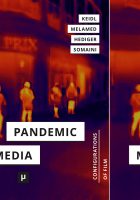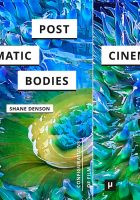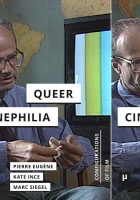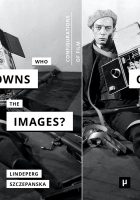- Language english Pages 310
- Publishing Year 2024
- Series Configurations of Film Series
-
ISBNs:
- 978-3-95796-018-4 (print)
- 978-3-95796-019-1 (PDF)
- DOI:
- 10.14619/0184
- Available as Print, PDF
- License:
- CC BY-SA 4.0
- Download:
- COVER (JPG)
Serge Daney and Queer Cinephilia
French critic Serge Daney was a central figure in film, television and media criticism of the second half of the twentieth century. He died of AIDS in 1992, just as the concept of queer cinema entered international film studies and just before the start of the digital era that has transformed film culture. This collection of new essays investigates the legacy of Daney’s work alongside considerations of feminist, queer and digital cinephilia and contemporary practices of film curation.
Don’t miss the and in the title, for this valuable book has two objectives. On the one hand, it proposes a vital, much-needed analysis of Serge Daney’s thought, of his work as a critic, media theorist, and founder of the essential film journal Trafic, topics which all remain woefully under-discussed in English. On the other, it considers the implications of this work for queer studies, initiating a productive, cross-disciplinary dialogue around topics like aesthetics and queer biography, film history and feminism, media archeology and festival programming. The broader frame moves past Daney in order to remain close to him: by abandoning the self-sufficiency of a single approach for the vulnerability of the encounter, the editors maintain the commitments to alterity, mediation, and impurity at the heart of his understanding of cinema.
—Sam Di Iorio, Hunter College, City University of New York
This international anthology helps to construct a renewal of transatlantic discourses on cinema. The contributions not only attempt to read Serge Daney from a queer perspective today, but also to understand queer theory anew, stemming from the cinephilic image theory of one of the most influential French film critics, who saw the era of post-cinema dawning as early as the 1980s.
—Christa Blümlinger, Université Paris-8
This invaluable book steps in to help fill a glaring void: the lack of English-language scholarship on the most respected French film and TV critic of the post-WWII era, Serge Daney. It trains a queer and feminist lens on Daney’s writings, a task both fruitful and fugitive, Daney being a gay man who rarely wrote about homosexuality–either his own or in cinema. Given that he spent the majority of his career steeped in the masculinist-heterosexual culture of Cahiers du Cinéma, this book, by imaginatively unearthing the “queer potential” of his vast oeuvre, has produced an exciting contribution to the study of film criticism that pulses with contemporary resonance.
—Girish Shambu, Canisius College, Buffalo, New York












